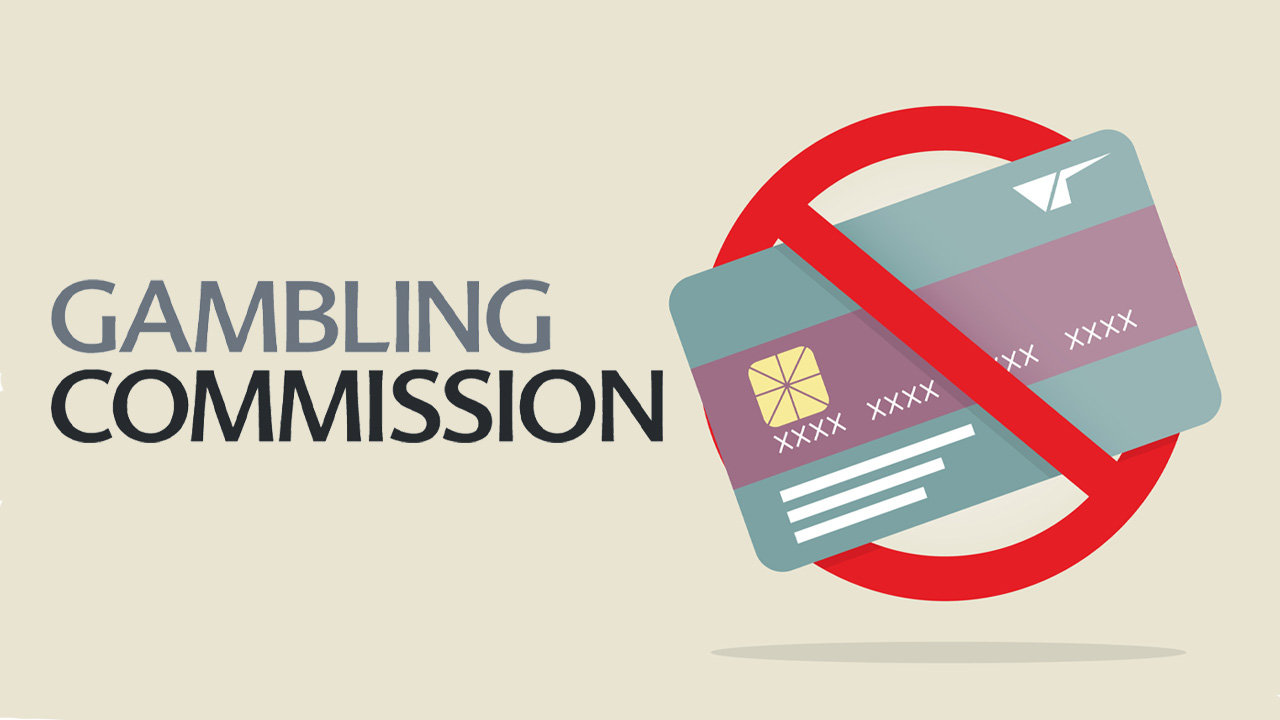The United Kingdom Gambling Commission is the main regulator for all gambling activities in the UK. They handle licencing and regulating for individuals and businesses offering gambling to citizens, including the National Lottery. Gambling regulation is simple given there is only one governing body in charge. This page focuses on the UK Gambling Commission and has information on how they came about, what they do and more for UK gambling laws.
The UK Gambling Commission is considering regulating the multibillion-dollar annual betting industry with a trimmed-down staff. (Image: UKGC) The Guardian was recently tipped off to the workforce. The Gambling Commission is an executive non-departmental public body of the Government of the United Kingdom responsible for regulating gambling and supervising gaming law in Great Britain. Its remit covers arcades, betting, bingo, casinos, slot machines and lotteries, as well as remote gambling, but not spread betting. The UK Gambling Commission was set up as part of the Gambling Act 2005, which aimed to regulate commercial gambling across Britain in partnership with licensing authorities. The UKGC assumed its full powers in 2007, and is responsible for regulating arcades, betting, bingo, casinos, slot machines and lotteries played in the UK.
This page pertains to regulatory agencies that operate within Great Britain and not the entire UK which includes Scotland, Wales, etc.; these countries have their own laws and regulations which is why it is entirely crucial to learn about various countries laws concerning gambling in order to stay in line with that country’s policies and regulations.
When Did The UK Gambling Commission Begin?
In 2005, the United Kingdom passed a comprehensive gambling law known as the Gambling Act. This Act legalized multiple forms of gambling including casinos, sports betting, poker and much more. It also included provisions for online gambling. As part of the GA 2005, the United Kingdom Gambling Commission was introduced to regulate the entire market. The Commission came to full power in 2007 and took over for what was once the Gaming Board of Great Britain.
Uk Gambling Commission Regulatory Return
What Does The UK Gambling Commission Do?
The UKGC’s gambling regulation falls in line with licencing objectives established by the GA 2005. These are:
- Preventing gambling from being a source of crime or disorder, being associated with crime or disorder, or being used to support crime.
- Ensuring that gambling is conducted in a fair and open way.
- Protecting children and other vulnerable persons from being harmed or exploited by gambling.
The UKGC also regulates the National Lottery, England’s major lottery system. Their goals, as far as regulation goes, are to guarantee that every lottery that is part of the National Lottery is run with due propriety, the interests of every participant in the National Lottery are safeguarded and to help the proceeds be as high as possible—this is because the National Lottery goes towards a good cause.
They handle licencing (in conjunction with local licencing authorities in some instances) for British operators and individuals. They specifically licence GB enterprises that have at least one of the following:

- Arcades
- Betting
- Bingo
- Casinos
- Gaming Machines
- Lotteries
- Remote Gambling (online, telephone)
- Gambling Software
They licenced one commercial operator to run the National Lottery. Camelot UK Lotteries Ltd. currently has this licence.
Who Sponsors The United Kingdom Gambling Commission?
The UK Gambling Commission is what is known as an NDPB, or a non-departmental public body. They are an independent entity sponsored by the Department for Digital, Cultural, Media, and Support. Funding comes from fees paid by organisations and individuals that are licenced by the UKGC. The Department for Digital, Cultural, Media, and Support establishes these fees.
What Is The UKGC Not Responsible For?
It may seem like the UKGC handles everything regarding gambling for England in the United Kingdom, especially since the GA 2005 is the overarching benchmark. However, there are a few things that the regulatory body does not cover. For example, they do not address consumer complaints regarding payouts or a bet you placed. Gambling and betting operators are supposed to have their consumer complaint system in place as part of their UKGC licence.
There is supposed to be an independent third-party if the case goes so far as to needing legal disputes. The same goes for disputes with the National Lottery. The UKGC can check to see if the operator fulfilled their consumer complaint obligations, but they do not address individual complaints.
When it comes to dealing with operators, the UKGC is there as a means of regulation and obtaining a licence. They do not provide any sort of legal advice or advice on developing a gambling business. They can provide basic information on the Gambling Act and how they deal with regulation.
While most sports betting is covered by the UKGC, there is one component regulated by another entity. Spread betting is regulated by the Financial Conduct Authority. The FCA is able to provide more comprehensive regulation for this niche market.
This may sound obvious, but it is worth stating. The UKGC does not regulate all gambling websites. They only regulate online operators servicing consumers in Great Britain. The Gambling (Licencing and Advertising) Act 2014 requires that all online operators seeking to advertise to U.K. consumers must acquire a licence from the UKGC.

How Does The UKGC Ensure Compliance?
Just because an operator possesses a valid licence doesn’t mean they are fulfilling the obligations of that licence. This is where regulation comes in. The UKGC is tasked with ensuring operators are compliant with their licence with several avenues including:
- Carrying out routine visits and inspections
- Taking preventative action towards consumers that could potentially be a problem
- Imposing licencing conditions; including possible new conditions
- Reviewing financial information and assets
Helpful Links

FAQ’s
Does The UK Gambling Commission Make It Illegal To Gamble Online?
No. The UKGC only regulates the industry and considers online gambling illegal only if an operator is conducting business in the U.K. without a legitimate licence.
Uk Gambling Commission Licensees
What Happens If An Operator Is Not In Compliant With Their Licence?
British operators face regulatory action and will have their licence revoked.
Does The UKGC Handle Social Gambling Responsibility?
Yes. The UKGC works with the Department of Digital Culture, Media and Sport and the Responsible Gambling Strategy Board. Together they examine the effects of problem gambling in order to introduce preventative measures.

ARE THERE PENALTIES FOR US RESIDENTS WHO BET ON SPORTS ONLINE?
Yes. There are multiple occurrences of the UKGC enforcing restrictions. A recent example came earlier this year when the UKGC fined William Hill, a UK bookmaker, for not protecting players after a money laundering scheme was uncovered.
With the legalization of online gambling in 2014, the so-called UKGC license was introduced. This license was granted to online casinos that have the ability to accept players from Great Britain. In concrete terms, this means that online casinos that do not hold a license like this are not allowed to accept players from Great Britain.
How can a UK Gambling Commission license be obtained?
The license that can be issued by the UK Gambling Commission is one of the strongest to date. Take, for example, the check that is carried out by the organization with regard to the technical operation of the online slots. The payout percentage in particular is continuously monitored by the UK Gambling Commission. Many online casinos are in any case not eligible to obtain a license from the UK Gambling Commission because they have not had the functioning of their random number generator checked. This audit must always be carried out by an independent and, of course, also specialized audit firm.
The so-called UK Gambling Commission was appointed as supervisor of these activities, which immediately made it responsible for granting or not granting licenses to companies. The new authority did not come out of the blue, because before 2014 the UK Gambling Commission was responsible for the ins and outs of ordinary, physical English casinos. Moreover, this task should not be underestimated. After all, there are few European countries where gambling is as popular as in Great Britain.
Uk Gambling Commission Loot Boxes
Online casinos that want to receive a license from the UK Gambling Commission must of course also be able to demonstrate that they have everything in order financially. This is also a considerable requirement. Not only must all formation costs have been paid, but there must also be a solid reserve with which the winnings of players can be paid out. Moreover, this reserve must be continuously replenished. Only in this way is it possible, after all, to be able to provide players with financial security for a short period of time. Another point that casinos must meet is to offer an exclusion option. In other words, does a player feel that he or she is becoming addicted? Then it must be able to exclude itself to prevent further financial loss.
Complaint handling
Uk Gambling Commission Deposit Limits
Contrary to popular belief, it is not the case that the UK Gambling Commission itself handles complaints from players. The moment you have a complaint about a certain online casino that holds a UKGC license, you must direct it to a so-called Alternative Dispute Resolution. These companies specialize in solving online casino problems and have been designated by the UKGC. In principle, every online casino has the option to choose a specific ADR. This is a drawback for the player. If an ADR is just a bit too annoying against a certain online casino, it can in principle effortlessly choose to switch to another party.